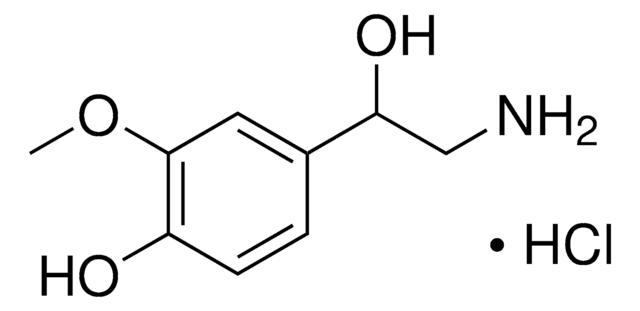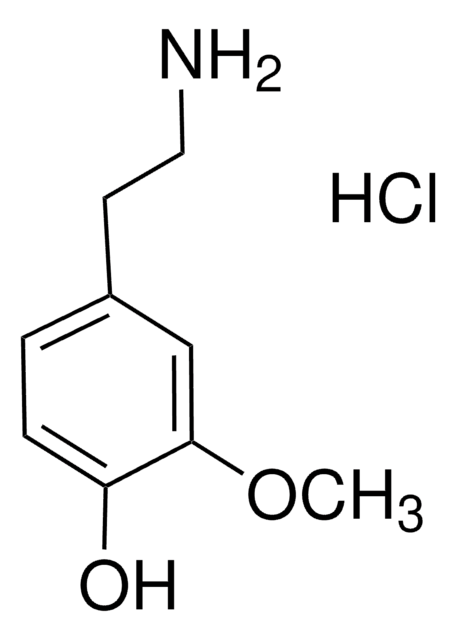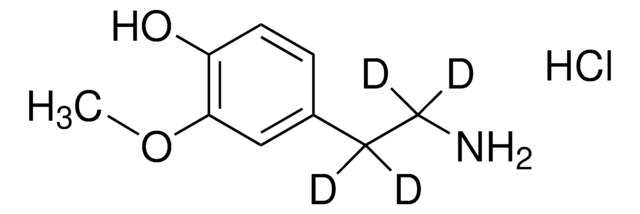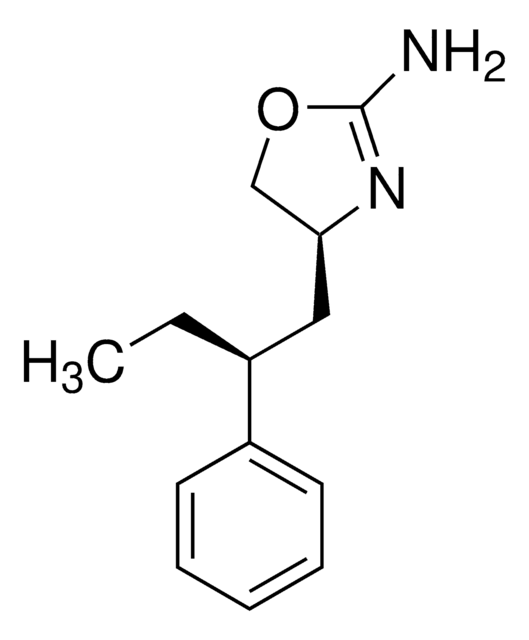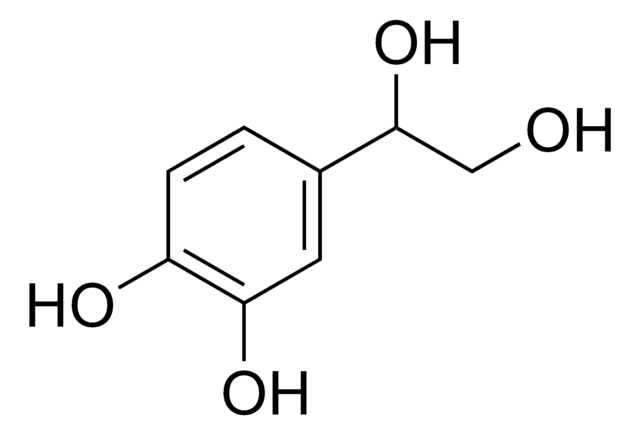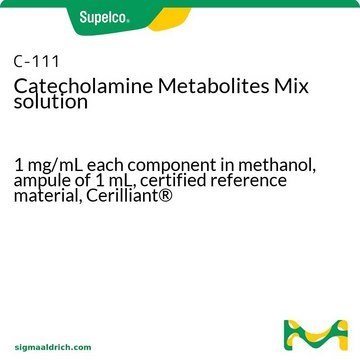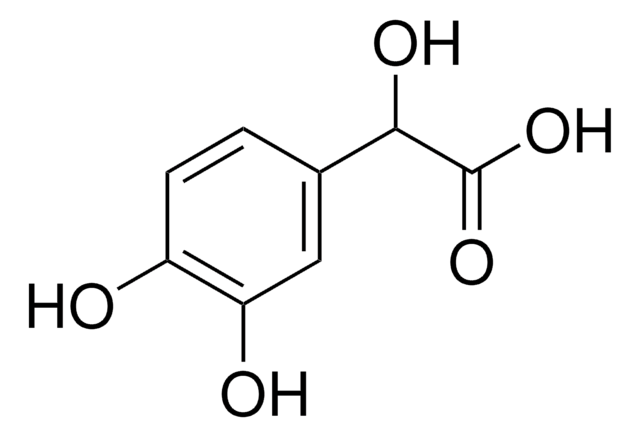SML0399
D,L-Metanephrine hydrochloride
≥98% (HPLC)
同義詞:
(±)-Metanephrine hydrochloride, 4-Hydroxy-3-methoxy-a-[(methylamino)methyl]-benzenemethanol hydrochloride, DL-3-O-Methyladrenaline hydrochloride, DL-Metanephrine hydrochloride, Metadrenaline hydrochloride, dl-Metanephrine hydrochloride, m-O-Methyladrenaline hydrochloride
登入查看組織和合約定價
全部照片(1)
About This Item
經驗公式(希爾表示法):
C10H15NO3 · HCl
CAS號碼:
分子量::
233.69
EC號碼:
MDL號碼:
分類程式碼代碼:
12352200
PubChem物質ID:
NACRES:
NA.77
推薦產品
品質等級
化驗
≥98% (HPLC)
形狀
powder
儲存條件
desiccated
顏色
white to beige
溶解度
H2O: 12 mg/mL (clear solution)
儲存溫度
2-8°C
SMILES 字串
OC1=C(OC)C=C(C(CNC)O)C=C1.Cl
InChI
1S/C10H15NO3.ClH/c1-11-6-9(13)7-3-4-8(12)10(5-7)14-2;/h3-5,9,11-13H,6H2,1-2H3;1H
InChI 密鑰
HRIQFVCFOPJYEQ-UHFFFAOYSA-N
生化/生理作用
Metanephrine is an endogenous metabolite of ephinephrine, formed by catechol-O-methyl transferase activity. It is best known as a biomarker for cancers, as levels of free metanephrine are used to diagnose pheochromocytoma. Metanephrine was previously thought to be biologically inactive, but it is a more potent agonist at Trace amine associated receptor TAAR1 than either epinephrine or norepinephrine. Trace amine associated receptors (TAARs) are recently discovered GPCRs that are activated by endogenous trace amines (tyramine, tryptamine, synephrine, octopamine, β-phenylethylamine), which are chemically similar to monoaminergic neurotransmitters (epinephrine, norepinephrine, dopamine). Trace amines and TAARs are expressed in brain and are implicated in modulation of monoaminergic neurotransmission.
特點和優勢
This compound is featured on the Dopamine and Norepinephrine Metabolism page of the Handbook of Receptor Classification and Signal Transduction. To browse other handbook pages, click here.
訊號詞
Warning
危險聲明
危險分類
Eye Irrit. 2 - Skin Irrit. 2 - STOT SE 3
標靶器官
Respiratory system
儲存類別代碼
11 - Combustible Solids
水污染物質分類(WGK)
WGK 3
閃點(°F)
Not applicable
閃點(°C)
Not applicable
分析證明 (COA)
輸入產品批次/批號來搜索 分析證明 (COA)。在產品’s標籤上找到批次和批號,寫有 ‘Lot’或‘Batch’.。
客戶也查看了
Augusto Q Pedro et al.
Microbial cell factories, 14, 113-113 (2015-08-08)
Membrane proteins are important drug targets in many human diseases and gathering structural information regarding these proteins encourages the pharmaceutical industry to develop new molecules using structure-based drug design studies. Specifically, membrane-bound catechol-O-methyltransferase (MBCOMT) is an integral membrane protein that
我們的科學家團隊在所有研究領域都有豐富的經驗,包括生命科學、材料科學、化學合成、色譜、分析等.
聯絡技術服務